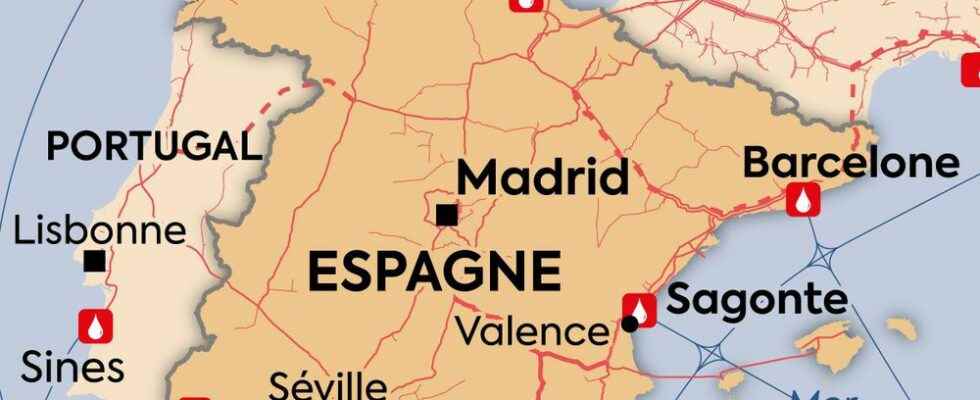Germany has long bet on its Nord Stream 2 project to gorge its industry, as powerful as it is energy-intensive, and its power plants with Russian gas. Finally, it will barely be able to count on the twin pipeline, Nord Stream 1 (in service since 2012) whose flow will be reduced by Moscow to 20% of its capacity. Under Angela Merkel, Berlin thought it had secured its energy supply for a long time. It now finds itself forced to rely on the solidarity of its European partners, starting with those less dependent on Russian hydrocarbons.
Yet these countries are precisely those to which Germany had lectured in the past by imposing budgetary cuts and painful reforms on them. Ten years after the euro zone crisis, in the unprecedented context of the war in Ukraine, the balance of power has been reversed and the memory of a certain German arrogance remains vivid. Also, Portugal, Spain and Greece last week refused the Commission’s initial proposal for a binding reduction for each Member State of 15% of its gas consumption, tailored to satisfy Berlin.
Out of the question, for them, to make such sacrifices for Germany, whose excessive dependence on Russian gas was a risky political bet for which they are in no way responsible. The pill is hard to swallow: after requiring financial efforts from the countries of the South that are socially harmful for their population, it is asking them to make new sacrifices, this time for the good of the German economy.
With the weapon of gas, Vladimir Putin gives back to the Europeans, as much for their military support for Ukraine as for the extensive sanctions aimed at his regime. He presses where it hurts: their natural tendency to disunity when it comes to each other’s interests. Hungarian Foreign Minister Peter Szijjarto was welcomed with open arms to Moscow last week to discuss new gas contracts, in addition to deliveries already planned for Budapest.
Portugal and Spain have a large set of gas terminals that Germany lacks.
Dario Ingiusto / L’Express
However, Hungary is an exception. Europeans know that the spirit of solidarity must prevail against the Putin regime, whose objective is to weaken Europe to the point of its total vassalization. Their energy ministers therefore agreed on Tuesday, July 26, for a plan to reduce their gas consumption by 15%. But there is a downside: this objective is based on volunteering. And if it becomes binding, in the event of serious shortages, a long list of derogations is provided for.
Thus, island states such as Cyprus, Malta and Ireland, because they are not connected to the European network, will be able to benefit from exemptions. The same goes for States which are heavily dependent on gas for their electricity (Greece) or which have developed large storage capacities (Portugal, Spain) and can re-export it – this is mainly liquefied natural gas from the USA or Nigeria.
“Spain has not lived above its energy capacities,” recalled the Spanish minister in charge of these issues, Teresa Ribera, last week, after the unveiling of the Commission’s proposal. A spade intended for the countries of the North, including Germany, very critical, after the 2008 crisis, towards the Mediterranean States accused of having lived beyond their budgetary capacities. A decade later, and without departing from their solidarity, they take their revenge.
